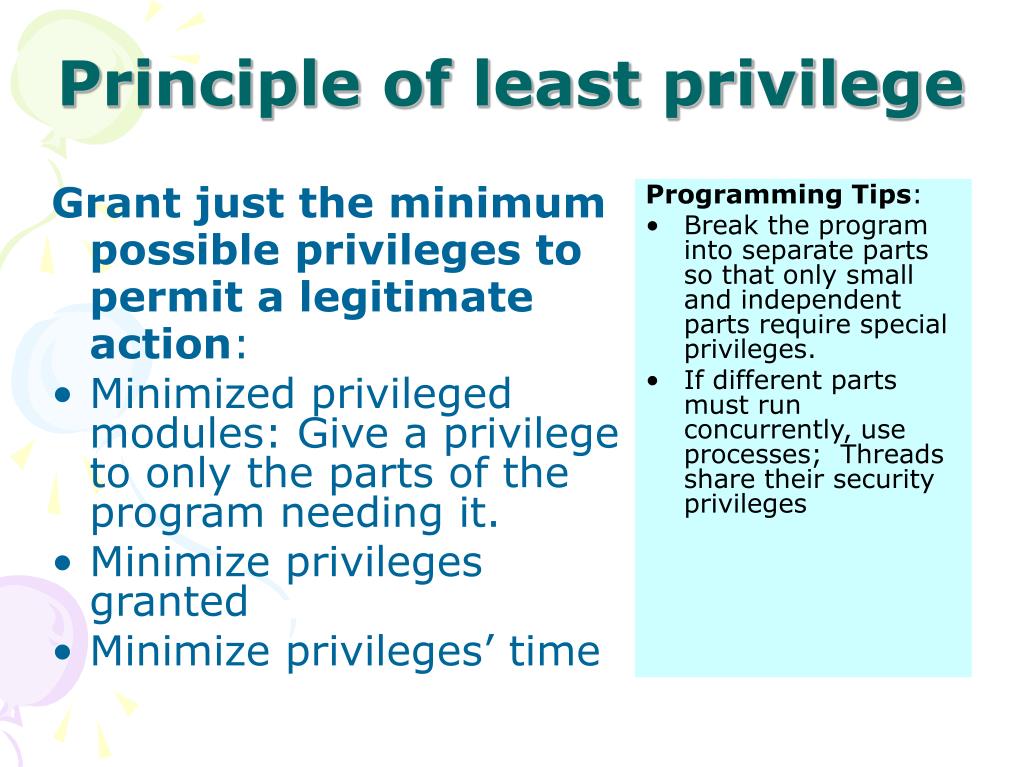

The POLP protects against bad internal actors If systems only have the minimum access needed, it makes it easier for disaster recovery teams to isolate the malware and stop the spread. This strategy is especially common with ransomware, which often arrives via a preventable phishing scam and tries to extort cash payments in exchange for removing viruses. When a computer or server is infected with a virus, the first thing a hacker will typically try to do is to spread the malware across the network to other devices. POLP proves its value in a time of crisis. All other requests for access would have to be submitted with a rationale. If their account were compromised, it could result in hackers stealing large amounts of information in a large-scale data breach.Ĭonversely with a POLP strategy, that user would receive read-only access to the exact portions of the database they needed to use to print their reports.
PRINCIPLE OF LEAST PRIVILEGE IN SECURITY FULL
They might only need to run reports from the system, but an administrator decided it was easier to give them full access. Take for example a user who has admin credentials to a back-end database.

If the POLP practice regarding proper role management isn’t followed, it can result in disaster. Through phishing attacks or social engineering, hackers can gain access to internal systems. Security and StabilityĮvery piece of technology within an enterprise – along with every person using the technology – represents a security risk to the larger organization. Let’s explore the deeper aspects of the POLP and the reasons why it has become a leading security strategy. This extends to every level of systems and infrastructure, including users, applications, and hardware. The Principle of Least Privilege dictates that access should always be restricted to the lowest level possible for requirements to be met. Security experts increasingly rely on a tactic known as the Principle of Least Privilege (POLP). One of the most important moves is to enact an access control policy that ensures normal operation continues uninhibited while also protecting against the threat of attack.
PRINCIPLE OF LEAST PRIVILEGE IN SECURITY SERIES
When it comes to cybersecurity, organizations and IT teams have a series of important and strategic decisions to make in the effort to prevent fraud and network breaches.


 0 kommentar(er)
0 kommentar(er)
